Increasing inclusion
November 29, 2023
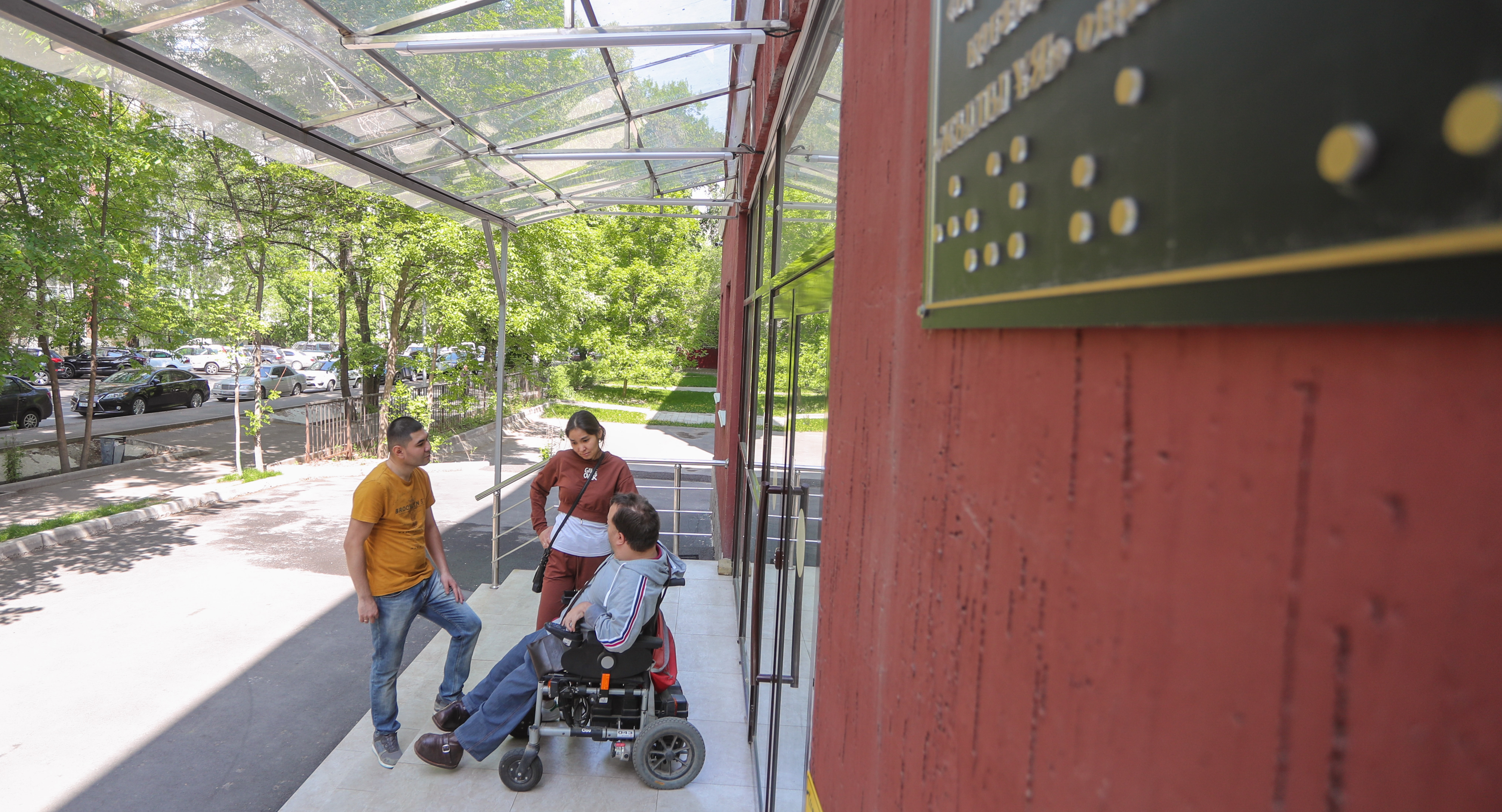
The 2023 International Day of Persons with Disabilities calls for renewed action to achieve the Sustainable Development Goals 'for, with and by persons with disabilities'.
Persons with disabilities make up an estimated 1.3 billion, or 16 percent of the world’s population. Yet estimates show that persons with disabilities are more likely to be unemployed, often earn less, and are twice as likely to experience discrimination.
The UNDP and United Nations Volunteer (UNV) Talent Programme – supported by Germany and Sweden – offers young people with disabilities the opportunity to acquire practical work experience through assignments with UNDP offices throughout the world. The aim is to increase inclusion in the development sector, and to ensure persons with disabilities have an opportunity to contribute the implementation of the 2030 Agenda for Sustainable Development.
To mark International Day of Persons with Disabilities 2023, meet three of our colleagues as they explain how access to employment can transform lives and increase inclusion.
Tayyaba: My present is more beautiful than my past
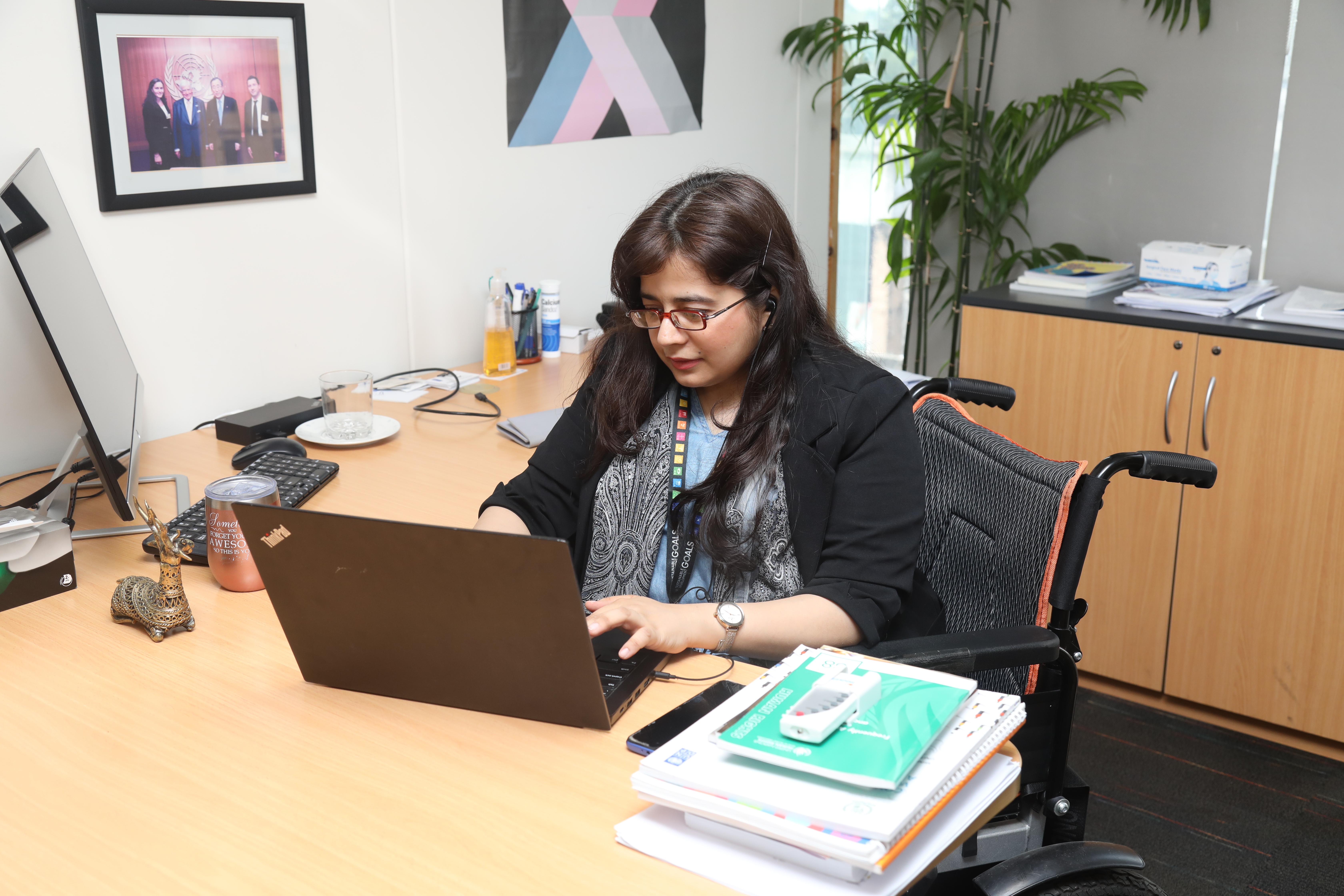
Tayyaba is passionate about providing adequate resources for persons with disabilities.
Tayyaba Arshi, 35, is a social inclusion officer for UNDP, working as a national specialist to UNV, based in Islamabad, Pakistan. She has been using a wheelchair since she was a small child, but her work with marginalized communities has shown that not everyone has the same experience.
“Accessibility is expensive”, said Tayyaba, as she explained that assistive devices are not affordable for many people in the country. “I recently met a group of persons with disabilities, and before coming to the training sessions, they used to crawl. They were not aware of any assistive devices they could use like wheelchairs,” she continued.
Tayyaba works with the local authorities on accessibility issues, drawing on her own experiences. “I could not go to the washroom at school. I had to come home early and go there. I had to not drink too much water,” she said.
Despite this, Tayyaba credits her education for giving her the opportunities she has today. “When I think of myself, if I wasn’t educated enough – I wouldn’t be here.” She now provides community trainings to ensure persons with disabilities can live independently and are treated with respect and dignity.
“Communities usually welcome me with a very warm heart. I tell them about livelihoods opportunities, that they can find work, they can travel the world and chase their dreams like I did. We need to empower persons with disabilities and make them realize they are not a burden to society,” she said.
Yet the research Tayyaba and colleagues have conducted, in collaboration with the UN Partnership on the Rights of Persons with Disabilities and UN Women, shows worrying trends. In some communities, more than 60 percent of women reported facing verbal abuse from their families and communities, while around 53 percent said they were denied educational and livelihood opportunities.
“People are hidden in their communities. For many, they are prisoners in their own homes, they are deemed asexual and they are being bullied. When they go to school or universities, society doesn’t understand them.”
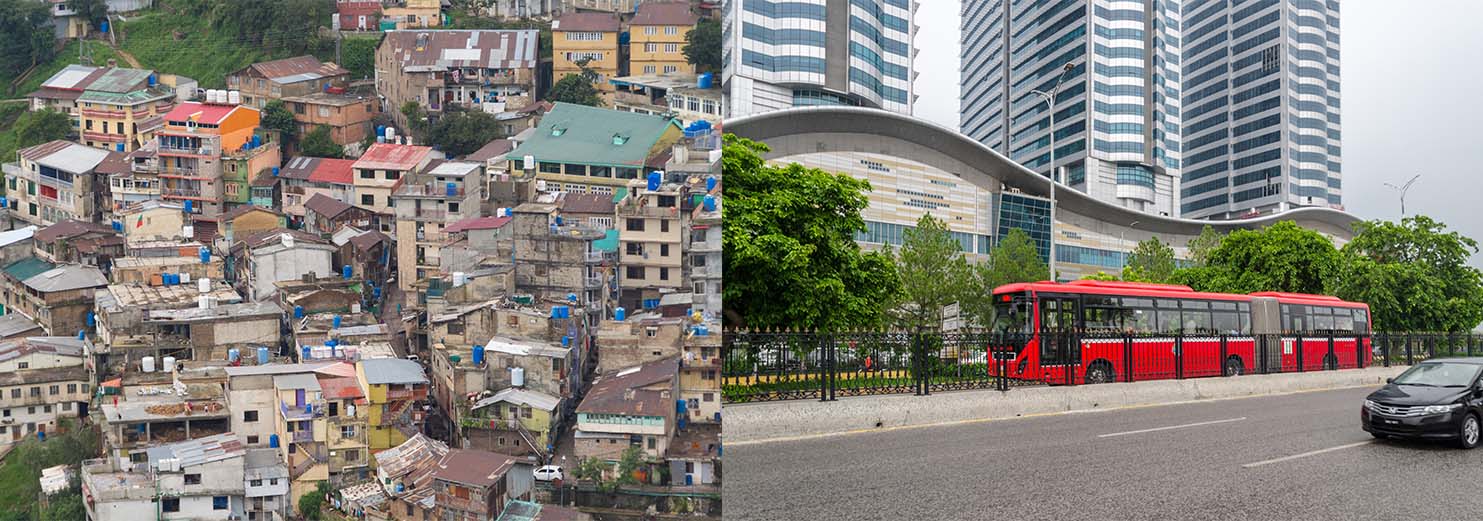
Many persons with disabilities face challenges around access to buildings and transport, which can prevent their full participation in society.
Stigma and discrimination also prevent persons with disabilities from fully engaging in society, which Tayyaba experienced herself. “I was made to feel like a misfit, not an equal part of society. I was isolated and wasn’t aware of my basic human rights. But I had a right to do everything. I was so excited when I first travelled on a bus – I was 26 years old.”
After a varied career working in the corporate sector, government and now the UN, Tayyaba's work has opened many doors. This includes buying an electric wheelchair with her salary. “That was the transformation of my career and my life,” she recalls.
Because of this, increasing livelihoods opportunities for persons with disabilities is Tayyaba’s focus. “Work is where you gain self-respect and financial independence, so you no longer depend on anyone. Then you can enjoy your life – with dignity, with empowerment and with self-esteem,” she explained.
As the fourth daughter and the only one to study at a prestigious University – Tayyaba can also see how far she has come.
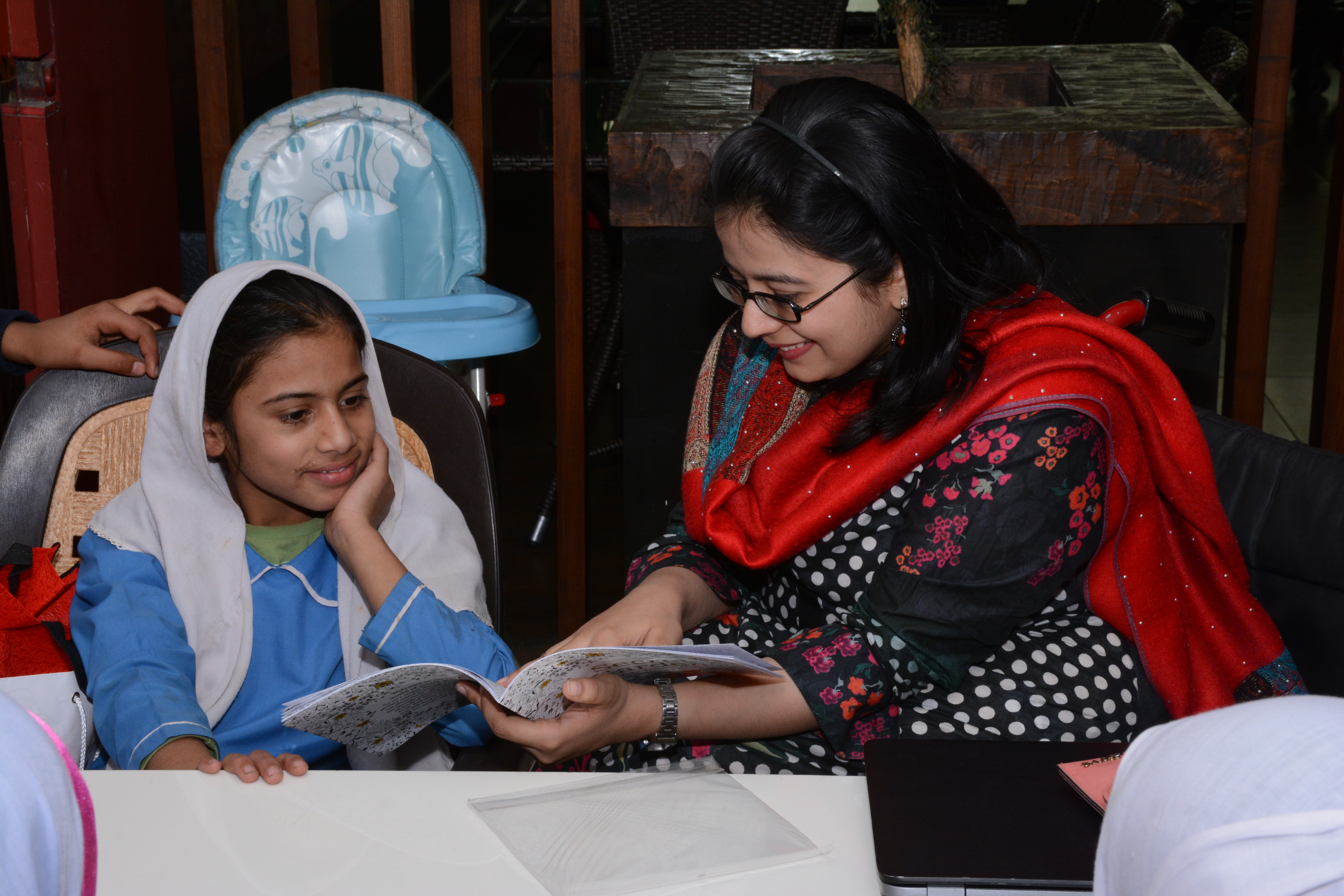
Tayyaba's work has given her a new sense of empowerment and has inspired her to educate others about diversity and inclusion.
“I have made my journey and my mark somehow. Now my family look at me with pride. Look, she's our cousin, she's our sister. She's working with good organizations and good people and has some voice in the world.”
“I encourage organizations to hire persons with disabilities; they are a valuable, untapped human resource. They exist and their existence matters,” she said.
Bartholomew: Who I was in January and who I am now are two different people
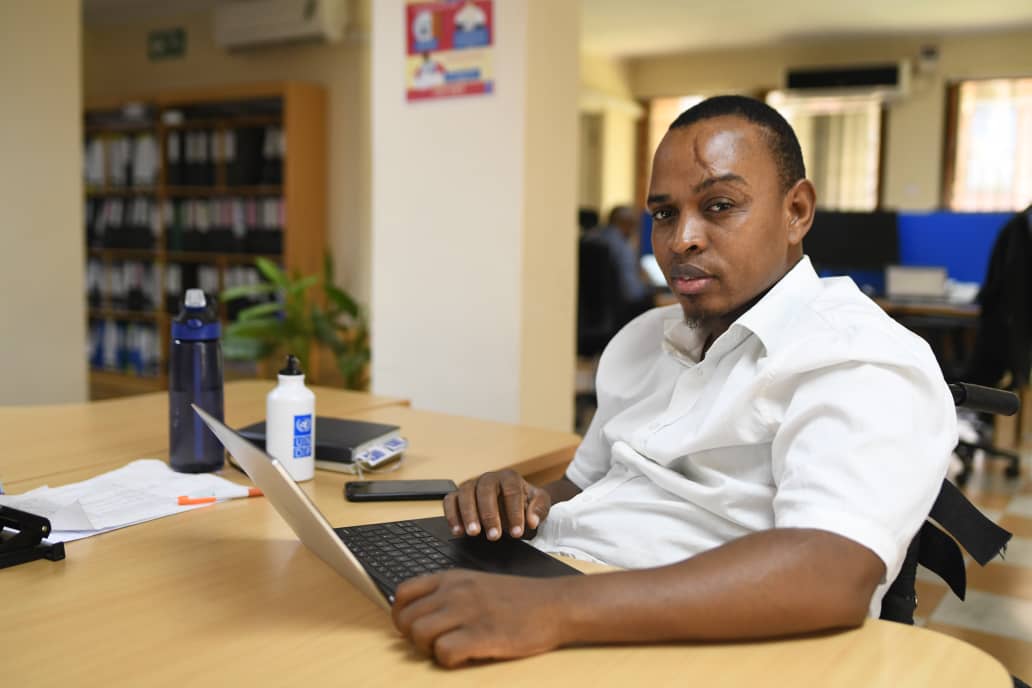
Bartholomew is a programme finance officer for UNDP Malawi. His work has helped him adjust to his new life after becoming paralyzed.
Bartholomew Maida, 35, is a programme finance officer for UNDP Malawi. Fifteen years ago, he was involved in a road traffic accident that changed his life forever.
“I was not born with disabilities,” he explained. “When I broke my spine I become a paraplegic person, and life changed instantly. Suddenly I started appreciating the transport and infrastructure challenges. It took a while to adapt to the new me.”
At UNDP, Bartholomew helps ensure compliance to the rules, regulations and financial policies of the UN and UNDP, while also supporting monitoring and reporting results of the country programme. It was a friend who suggested he apply, and he started his position in January 2023.
“Who I was in January and who I am now are two different people. Because I’ve grown personally and professionally. I've interacted with great minds in the corridors and I've seen how the organization works. I’ve amassed knowledge which I think will be important in my career.”
But getting to this point has been difficult, as after his accident Bartholomew had to drop out of school.
“I had to stay home for many years after the accident. My life felt like it was at an end. But then I decided, no. Even though it has been seven years, I can continue with life. But to access education, it was not easy.”
Bartholomew explained that many educational institutions are inaccessible, and transport can also be an issue.
“It becomes expensive because all of a sudden you can no longer use public transport because it is not disability friendly. So you have to dig deep in your pockets if you want to travel, as you need a taxi to take you.”
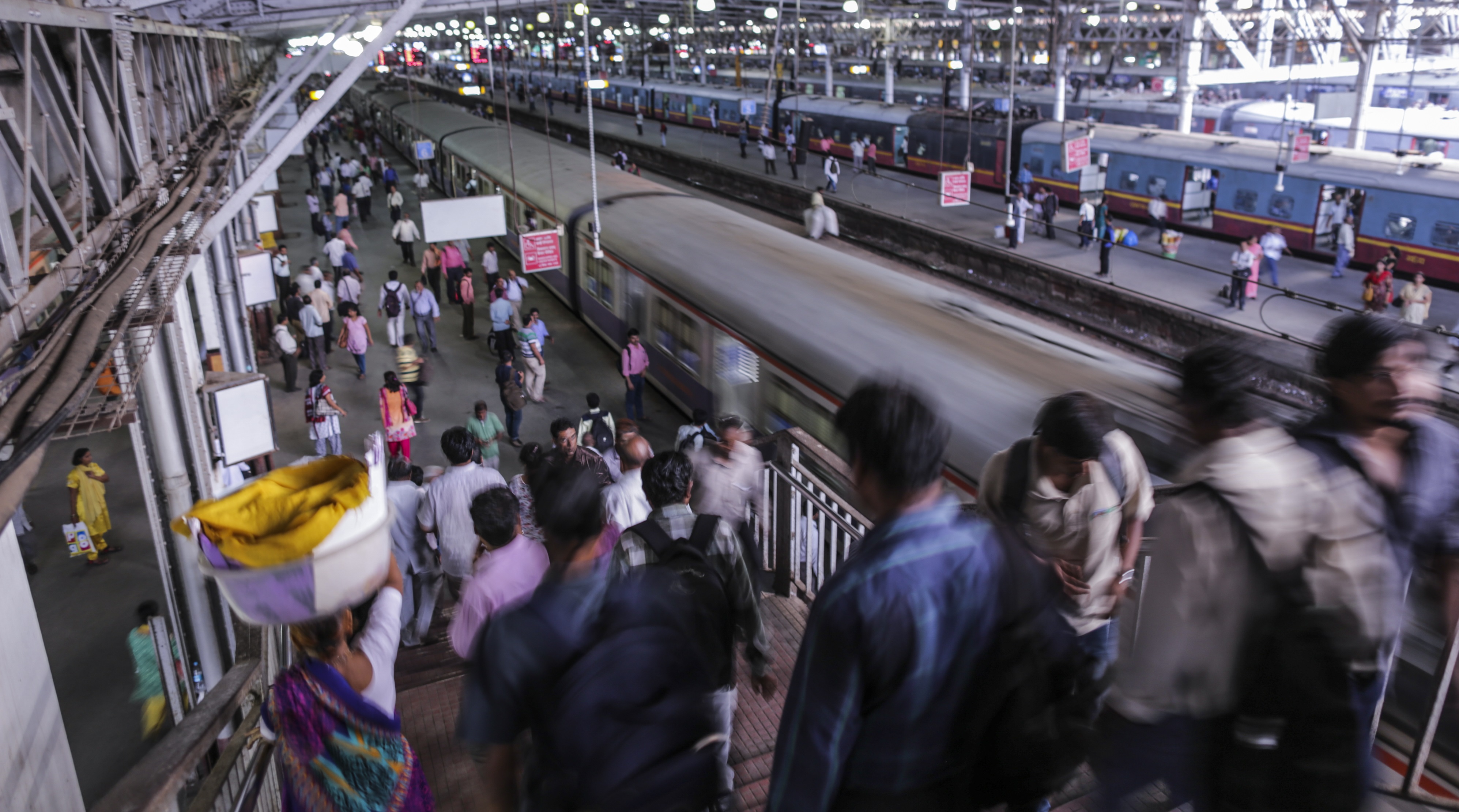
Issues with access can also prevent persons with disabilities travelling on public transport.
Despite this, Bartholomew achieved his accountancy degree in 2021 and began searching for a job. “It's challenging because employment in Malawi is scarce. And normally whenever there's a job offer, there's a prerequisite that says you need a number of years of experience. But for persons with a disability, finding that experience ,it's not that easy,” he said.
Even with the right experience and skills, Bartholomew explained that many companies may still hesitate. “Companies see you as a cost because their infrastructure might not be appropriate. So even if you have a good CV, they realize you are disabled and they just leave you behind.”
“Or you apply for a job, you arrive for the interview and you have indicated that you are a person with disabilities and use a wheelchair. But then you see the office and it's not wheelchair user friendly and there's nothing they can do to help you. I have experienced that, where you become dispirited and leave because you cannot access the rooms.”
Bartholomew believes one solution would be an affirmative action policy that ensures every organization has a responsibility to hire persons with disabilities. “This way, persons with disabilities can have a chance of participating in the development of their countries. Because for a person with a disability to hunt for a job, right now the ground is not level,” he continued.
In the future, Bartholomew wants to continue his work with UNDP and is focused on his professional development.
“I want to continue making meaningful contributions and having an impact. In this role you learn fast, because you have to know almost every programme in the office, so that brings development with it,” he said.
“People need to appreciate that disability is not inability.”
Adriana: I feel my contributions are taken into account. Not because I'm a person with a disability, but because of my knowledge
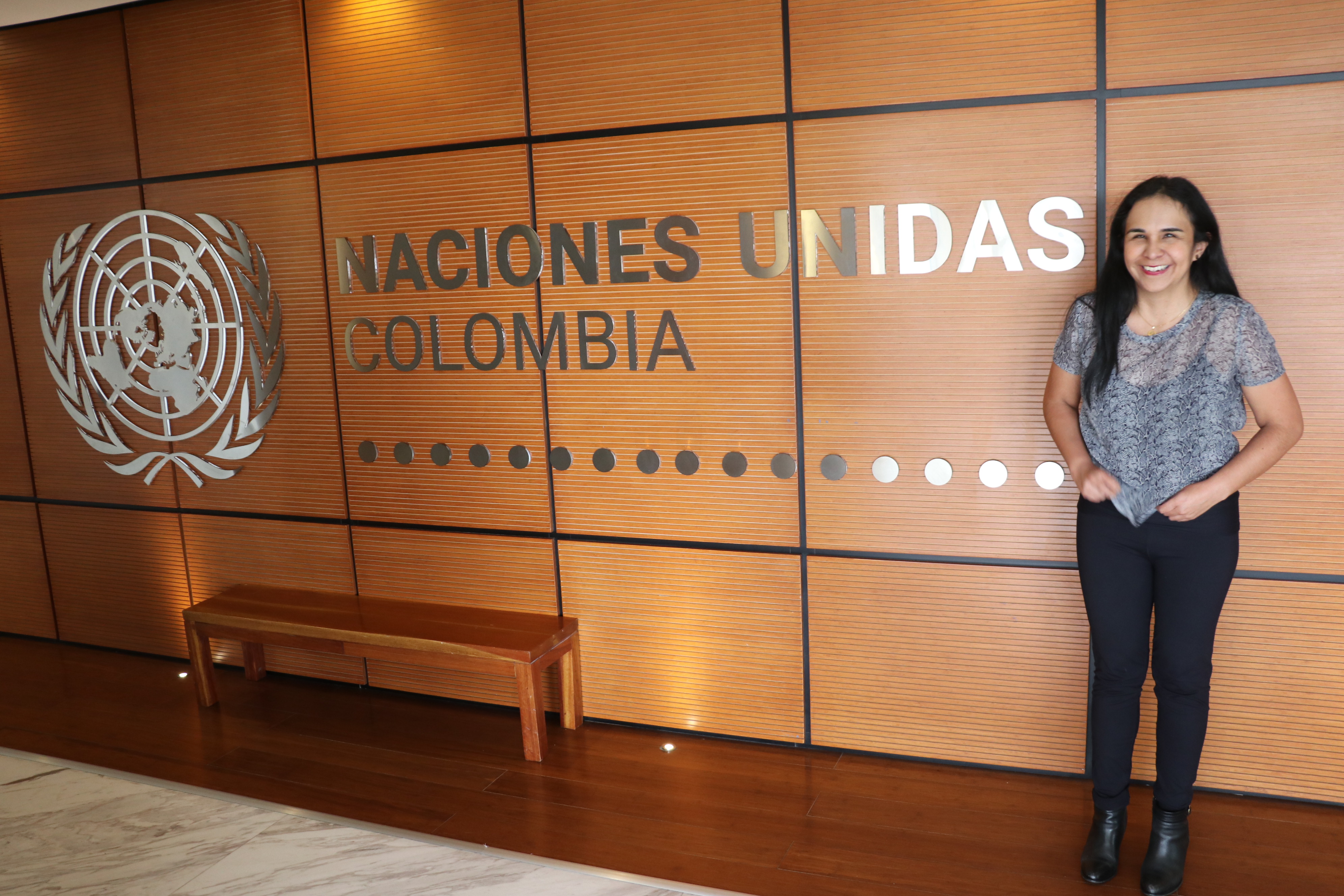
Adriana champions the provision of free assistive technology to persons with disabilities.
Adriana Pulido, 43, is a disability inclusive strategies specialist at UNDP Colombia. She has been blind since she was a baby, and her experience of living with a visual impairment led her to spearhead an initiative to provide free assistive technology in her country.
“It was ironic because when they first told me – look there's this screen reader for blind people to be able to use computers – I was saying that's impossible. I didn't think it was a real thing. So at the beginning I wasn’t convinced. But now, people’s lives have changed for good,” she said.
Adriana explains that it was due to these technological advances that she was able to type and read things by herself, something in the past her family and friends had to help with. This was crucial during her masters degree; Adriana was the first person with a disability to win the Fulbright Scholarship in Colombia.
“Thanks to technology, I've been able to win autonomy and independence. Now I love technologies. It can be life changing and it was even life changing for me,” she continued.
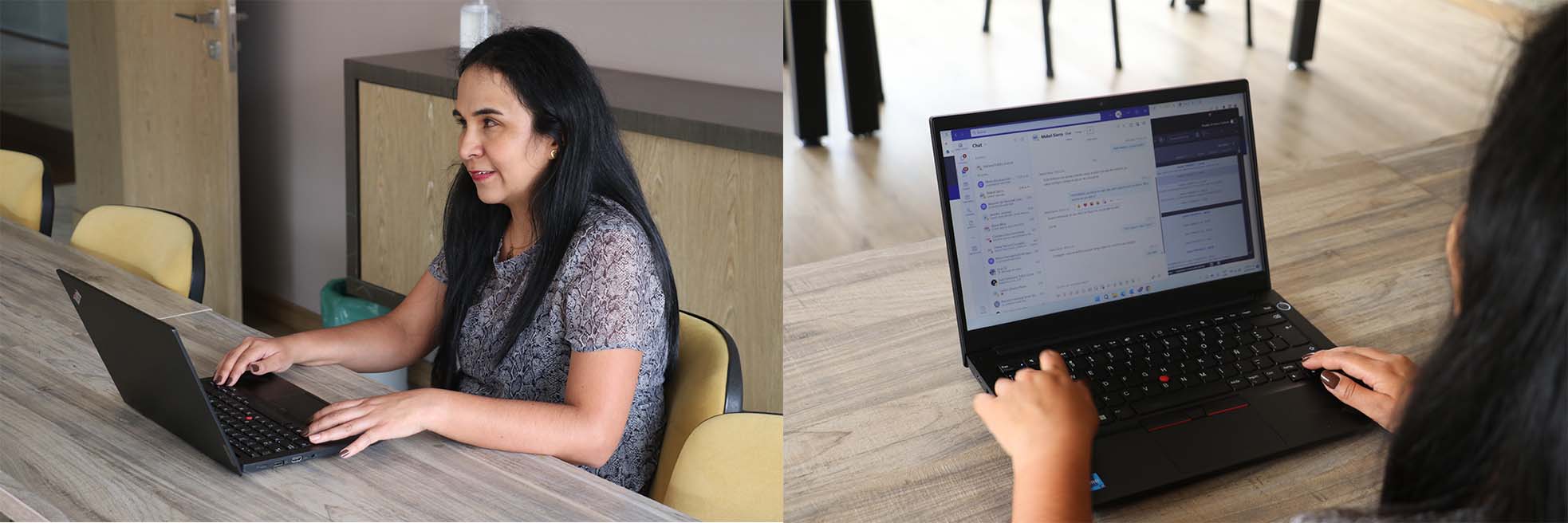
Adriana explains that persons with disabilities must be considered equally important as their colleagues in order to have a fully inclusive workplace.
In her role with UNDP, Adriana is in charge of leading the disability mainstreaming strategy at the office, which focuses on a human rights approach to disability. This includes providing relevant trainings, leading the launch of a disability working group within UNDP Colombia, and promoting partnerships. It was through this partnership promotion, that a new Inter-agency Working Group was launched.
“We have focused on identifying the challenges to mainstreaming disability at the office and set up what we call the inclusive consultancy, where we help solve real cases. People attending the sessions will ask for help and we provide training on disability and inclusion related topics. We also invite expert guests who can share their experiences,” she said.
When looking at the main challenges facing persons with disabilities in the workplace, Adriana knows that inclusive education is imperative. But the stigma and discrimination persons with disabilities face must also be addressed.
“Employers might have the best facilities and the best technologies in the market, but if people think that persons with disabilities are not able to perform their jobs, you have nothing. Because often employers aren’t convinced that people with disabilities can have an added value.”

Sharing the positive impact of employing persons with disabilities can help to challenge perceptions and encourage diverse and inclusive workplaces.
This is why Adriana feels it is crucial to show success stories and the positive impact of hiring persons with disabilities. “You still have to break attitudinal barriers, which are the most difficult – but also the most necessary – to break,” she continued.
At UNDP, Adriana is driving forward the organization's mainstreaming strategy, bringing her decades of experience working in the public and private sector.
“I feel my contributions are taken into account. Not because I'm a person with a disability but because of my knowledge. I feel my team has been able to focus on my skills,” she said.
She also has great ambitions for the future. “We need to foster inclusion nationally and internationally.”
“We need to reach more people, those who haven't been able to access education or employment, and I want to do what I can to help improve this situation.”

 Locations
Locations



